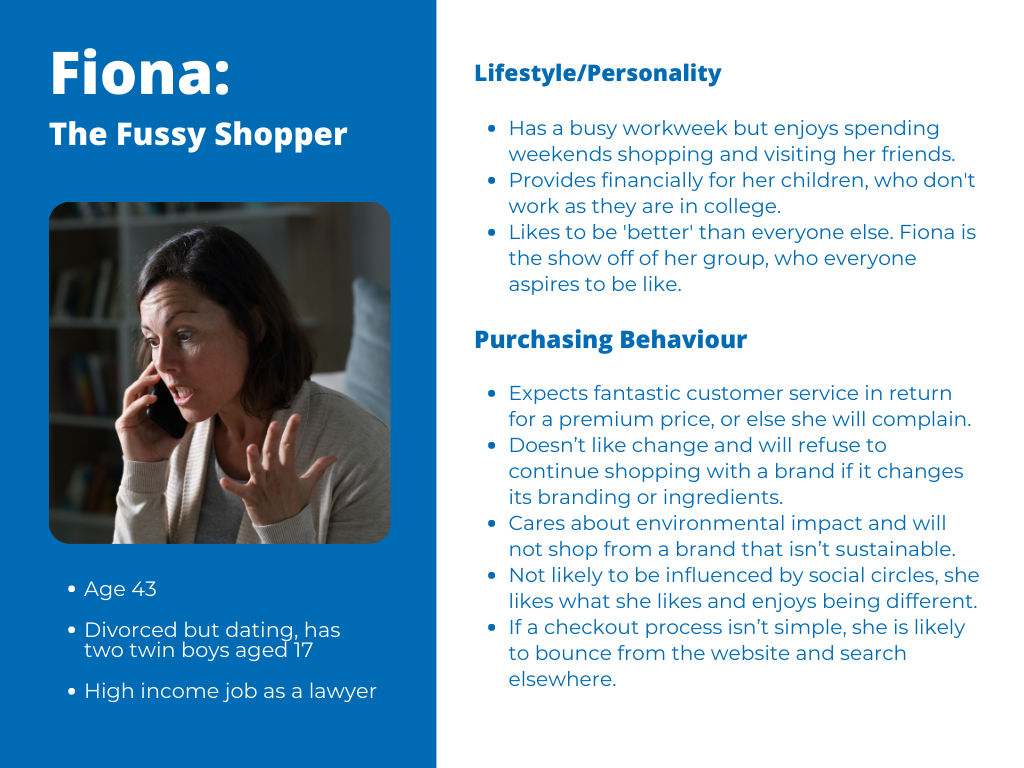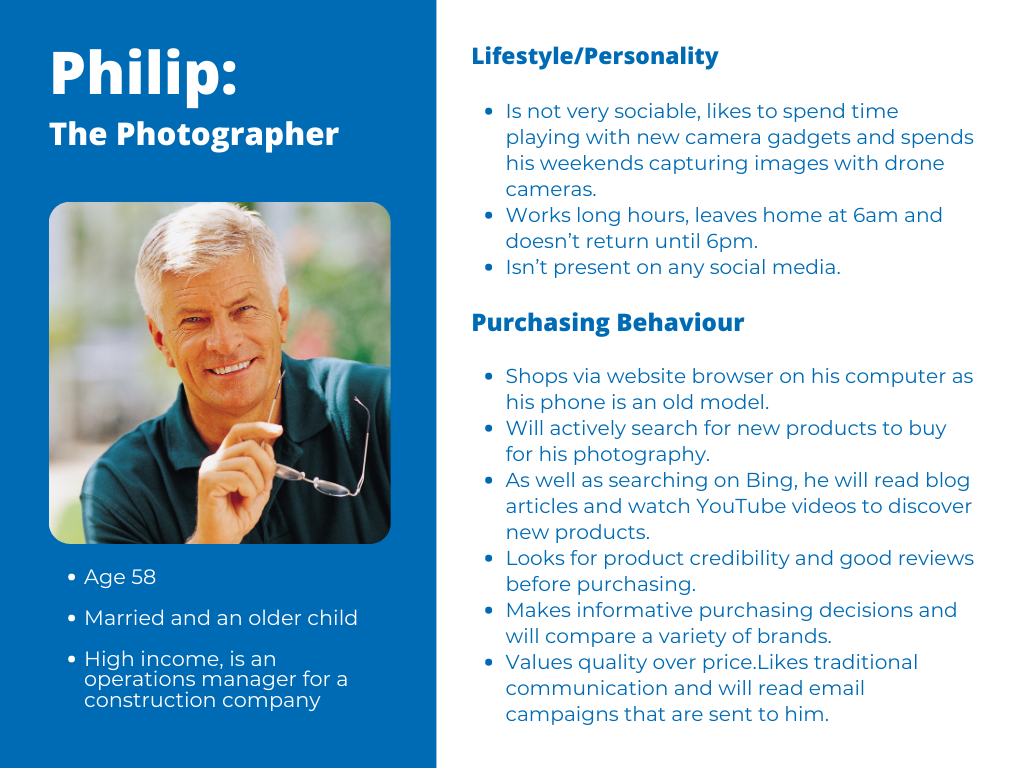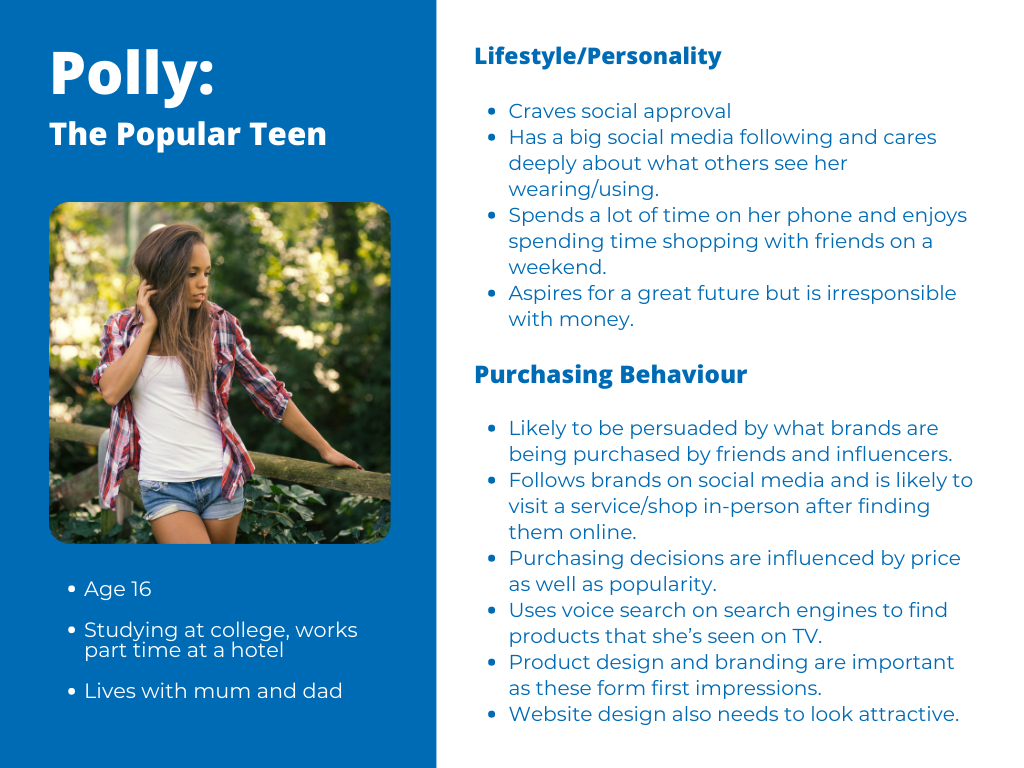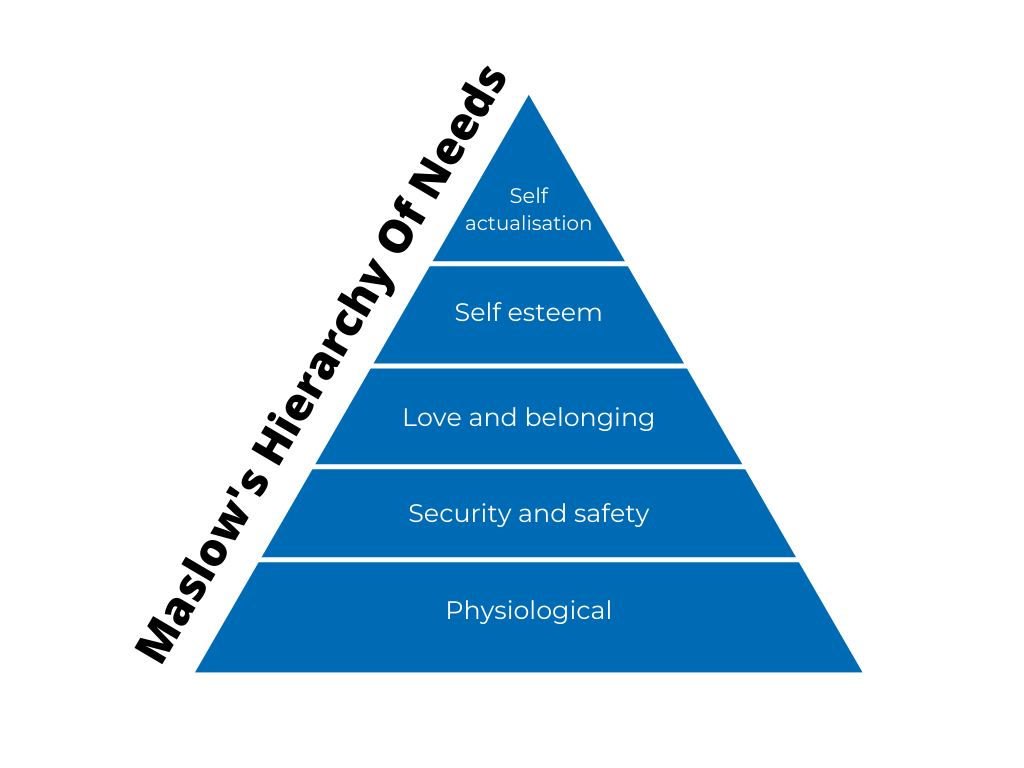How Does Consumer Psychology Affect Marketing?
What is consumer psychology?
Consumer behaviour is defined as 'the study of individuals, groups, or organisations and all the activities associated with the purchase, use and disposal of goods and services, and how the consumer's emotions, attitudes and preferences affect buying behaviour'.
Understanding how consumers think and feel is absolutely key to gaining new customers, changing perceptions of your brand and developing customer loyalty. If you care about your customers, get to know them and tailor your products and activities to best suit them.
In this article, we'll discuss buyer personas and we'll take a look at Maslow's motivation theories, taking a deeper look into the world of buyer behaviour.

Buyer Personas
Every consumer is different, so it's important to take this into account and try to meet various customer needs through different forms of communication and marketing activities. A one size fits all approach is a recipe for disaster! To classify different customers and to better understand individual customer's purchasing motivations, you should create a buyer persona.
What is a Buyer Persona?
A buyer persona is a representation of your ideal customer based on market research and your existing customers. It is about putting together a 'person' behind your data, rather than classing them as a statistic on a screen. Buyer personas should take into account customer demographics, behavior patterns, motivations, and goals.
Examples of Buyer Personas
Below, our marketing specialists have put together five different buyer personas, which we will refer back to during this article.





Maslow's Motivation-Need Theory
One of the most well-known names when it comes to psychology and business theories, Maslow is someone that you might of already heard of.
Maslow’s Hierarchy of needs is a theory that was developed by Abraham Maslow in the 1940s. This theory has been used to understand human behaviour for decades, helping to understand what factors motivate humans to work, purchase or make a particular decision. According to Maslow, humans are motivated by having different levels of needs met. These needs start at a basic level, developing into further levels of more specific needs. A level of needs can't be met until the level beneath it has been achieved.
What do these levels of needs include?
Physiological Needs: The most basic level of needs, this level consists of factors needed for human survival. For example, food, water, clothing and shelter.
Safety and Security Needs: These factors include health, job security, trust, stability and safety.
Love and belonging: These factors include meaningful relationships, connection, friendship and intimacy.
Self Esteem: These include confidence, respect, achievement and uniqueness.
Self Actualisation: These include morality, creativity, spontaneity, purpose and inner potential.

How Maslow's theory helpful for businesses and marketers?
By understanding what motivates people, marketers can use this information to recognise which factors persuade consumers to make a purchase, switch suppliers, form brand loyalty and make other buying-related decisions.
Businesses need to work out how they can meet these level of needs to satisfy their target audience, customer base and encourage continual purchase and brand loyalty. Convincing customers to buy can sometimes be as simple as a money-off initiative or premium branding strategy, but with so many businesses competing and using evermore sophisticated ways of drawing in customers, it's important to REALLY get to know your customers and find out what satisfies them. Afterall, if you can meet 4/5 of the levels and your major competitor can only meet 2/5 of the levels, you're already at an advantage.
Here's how you can meet each of the levels...
Physiological Needs
This is the easiest level of needs for your business to meet and most of the time, you don't even need to try to meet this one. Meeting this level of needs is a minimum expectation and in no way is enough to set you apart from competitors. For example, we buy groceries because we need to eat, we buy clothing because we need to, we buy houses because we can't live on the streets. You need to differentiate your business and your offering to stand out, add value for the customer and ultimately, be successful.
Safety and Security Needs
A business can meet these needs of their customers by providing returns options or quality guarantees (this reassures the customer that they're covered if a problem occurs), a safe product (customer won't be harmed), reliable payment options (where the customer can feel assured that they won't be scammed or lose money) and a good brand reputation (customer trusts the supplier). As a business, you need to ensure that you're providing this security to customers, as they won't hesitate to choose an alternative brand if those needs aren't being met by you.
Love and belonging
Businesses can meet these needs by building a strong relationship with a customer, offering loyalty schemes, making customers feel appreciated, using personalised ads which are tailored specifically to an individual customer. For example, Waitrose offer their MyWaitrose loyalty scheme, where customers are entitled to a free hot drink, a free paper and personalised offers, which consist of the items most bought by the customer. This makes the customer feel special, valued and as though they're important to Waitrose. Instead of sending generic, one-size fits all kind of offers, they offer something personal to you, which really shows Waitrose's ability to go one step further than your usual supermarket.
Self Esteem
Self-esteem needs can seem like a tricky level to accomplish, but really, it's pretty simple- Make the customer feel good about themselves. This can be easily met by a premium brand, as customers may purchase an expensive brand in order to feel successful, show off to peers and feel a sense of power.
Using the Waitrose example again, the entire idea of 'shopping at Waitrose' is much more meaningful than simply popping in to pick up some groceries. Compared with other supermarkets, Waitrose is seen as the elite, we have this perception that if you shop at Waitrose, it means you're wealthy and successful. By shopping at Waitrose, the customer gains a sense of self-esteem, the sense that they're 'good enough' to shop somewhere like Waitrose, even if in reality, they can't really afford it. Likewise, someone wearing a pair of Louboutin heels may feel much more confident than somebody wearing a pair of New Look heels.
But, this doesn't mean that lower priced brands can't accomplish these needs too. Many different things make us feel great, for example, grabbing a bargain, finding the shirt you've wanted for ages on a 50% off offer or, buying from an ethical makeup supplier rather than one that tests on animals.
Self Actualisation
This level of needs can often be achieved by a brands image and messaging. Similar to self-esteem, self-actualisation differs in that it refers to feelings from internal influences, rather than external. Self-esteem needs are heavily dependent on how other people view you, for example, your social groups being jealous of a new designer handbag you bought and this making you feel lucky. Or, being seen using an ethical brand and feeling as though you will be viewed as a good person. Self-actualisation refers to feelings which are really internalised, for example, your core values, morals, purpose and potential.
A brand could help to achieve this level of needs by making a customer feeling really, genuinely good about themselves. For example, Dove have consistently promoted messaging of 'every body is beautiful', making customers with insecurities feel more confident in their own skin. For example, let's use the example of Bianca, our busy mum (refer back to buyer personas). Hannah has had children and struggles with her self-confidence as she doesn't like her stretch marks left from pregnancy, she often feels unhappy in her own skin and struggles to value herself as a result. For a brand to run a campaign about empowerment and consistently remind customers of their self-worth, customers internalise feelings of being 'strong' and 'good enough'. They associate these feelings with the brand and in a way, feel that the brand was there for them when they needed it. Those kinds of feelings are the ones that play a huge part in brand loyalty.
Another important way which self-actualisation can be achieved, is by aligning your values with those of your target audience. For example, if your audience includes sustainability-conscious teenagers, you're not likely to get much custom if you're renowned for using too much plastic, testing on animals or not running any CSR initiatives. By offering products made from recycled materials or vegan-friendly products, you're able to cater to the demands of that particular audience. So, if you're a clothing brand who aren't using sustainably-sourced materials and your competitors are, you might want to review your offering.
Iocea: Helping You To Cater To Your Customers
With every step of our processes, we have your customers in mind. At our Lincolnshire website design agency, our digital marketers conduct research into your audience, really getting a grasp of what your brand stands for and who your customers are. Using this information, we can create the best online user experience possible for your customers when we build your website. As well as when developing websites, we invest a lot of time and energy into researching your audience when putting together designs for your business and when running digital marketing campaigns, such as PPC advertising and social media marketing.
Get in touch with our eCommerce specialists today at iocea, we really look forward to hearing from you!